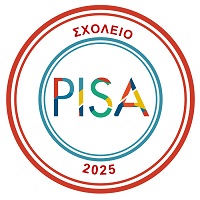Our school, the Music High School of Serres, in northern Greece, was established in 1994 – at the beginning, starting with the first grades of Junior High School, and little by little growing into a school of six (6) grades, of Junior and Senior High School. The first few years, it shared lodgings with another High School until 2000, when a brand new building was built.
The Music High School lies in the outskirts of our town and has a lot of facilities. There are about twenty classrooms, a library, a chemistry lab, a conference room, one outdoor and three indoor amphitheatres, a great number of classrooms for music courses, an indoor gym, as well as basketball and volleyball courts in the yard. Students come to school by bus, which is offered by the ministry and local municipality, from all around the prefecture. Lessons start at 8a.m. and finish at 2.30 p.m., Monday to Friday.
Students are taught all the subjects of the National Curriculum that students in other conventional High Schools are taught, plus a great number of music lessons. So, together with mathematics, science, Ancient and Modern Greek, foreign languages and others, they are also taught theory of Music- both European and Byzantine/Traditional- History of Music, Harmony, Drama, Choir classes, as well as three musical instruments. They learn how to play the piano and tambouras- one European and one Traditional instrument- which are compulsory, plus an optional musical instrument of their choice. They can choose from a great range of instruments, such as violin, cello, clarinet, flute, trumpet, guitar, accordeon, bouzouki, harp, drums, to mention only few of them. What is really important is that each student is taught individually in classes of the musical instruments, and in groups of four or five in harmony classes.
How can students enter the school? When children finish Primary school – at the age of 12- they can take exams to come to Music School. They have the opportunity to attend some free lessons – offered by the music teachers of our school in a voluntary basis – before taking the exams, so that they can practise some skills for the exams. It is not necessary for candidates to know certain things about music or play a musical instrument; what is important for them is to have some musical perception, rhythm and a pretty good voice to sing. Students sit the exams in late June and 70 of them enter the school for the 1st grade.
Apart from the typical lessons of the curriculum, students prepare, through music classes, for a number of performances- ranging from 10 to 15 or more in a school year- plus the celebrations for certain national holidays. There are performances of European and Traditional Music, Classical Music, concerts given by teachers of the school, most of which are also open to the public of our town. Our school also participates in local festivals or occasions, whenever is asked by the municipality, for charity purposes or local celebrations, throughout the year. There are records kept of all the performances of our school, with photos and videos.
As you may probably realise from the above, students have the chance to experience something completely different from other aspects of ordinary school life in any other school. During choir or drama classes, rehearsals for the performances, students learn, first and foremost, to cooperate, work together with their fellow-students for a common goal, forget their ego and try for the school’s benefit and promotion. The satisfaction they get after a successful performance is such, they look forward to the next concert, and they are always willing to take part in performances.
What is also worth mentioning is that students are taught the musical instruments individually. That means that there are tutorials of one-to-one, teacher and student. This is a great advantage for the students as they can make progress very quickly and promptly see the fruits of their effort and work. Furthermore, teachers and students have a closer relationship – the teachers are there for them whenever the students need them, and students feel that they can ask things from their teachers. Another characteristic of this school is that teachers of general – and not music – subjects should also have some extra qualifications. Most of them have a Master’s Degree or a PhD, computer certificates, as well as music or drama qualifications and studies.
Last but not least, we should also refer to what students can do after graduating the Music High School at the age of 18. As mentioned before, students attend all subjects of the National Curriculum, together with their music studies. As a result, they can take the National University Entrance Exams to get into any Institution of their choice and study Medicine, Law, Languages, Science, or pursue further studies in Music. They can also be given certification of the music studies in our school if they want to study music abroad.
In conclusion, our graduates have been quite successful in their further studies, in either different scientific fields or music. What is most important, though, is that they always remember their school with love and nostalgia, and often come back to see their teachers or support the school performances, even when they are university students somewhere far away from home.

